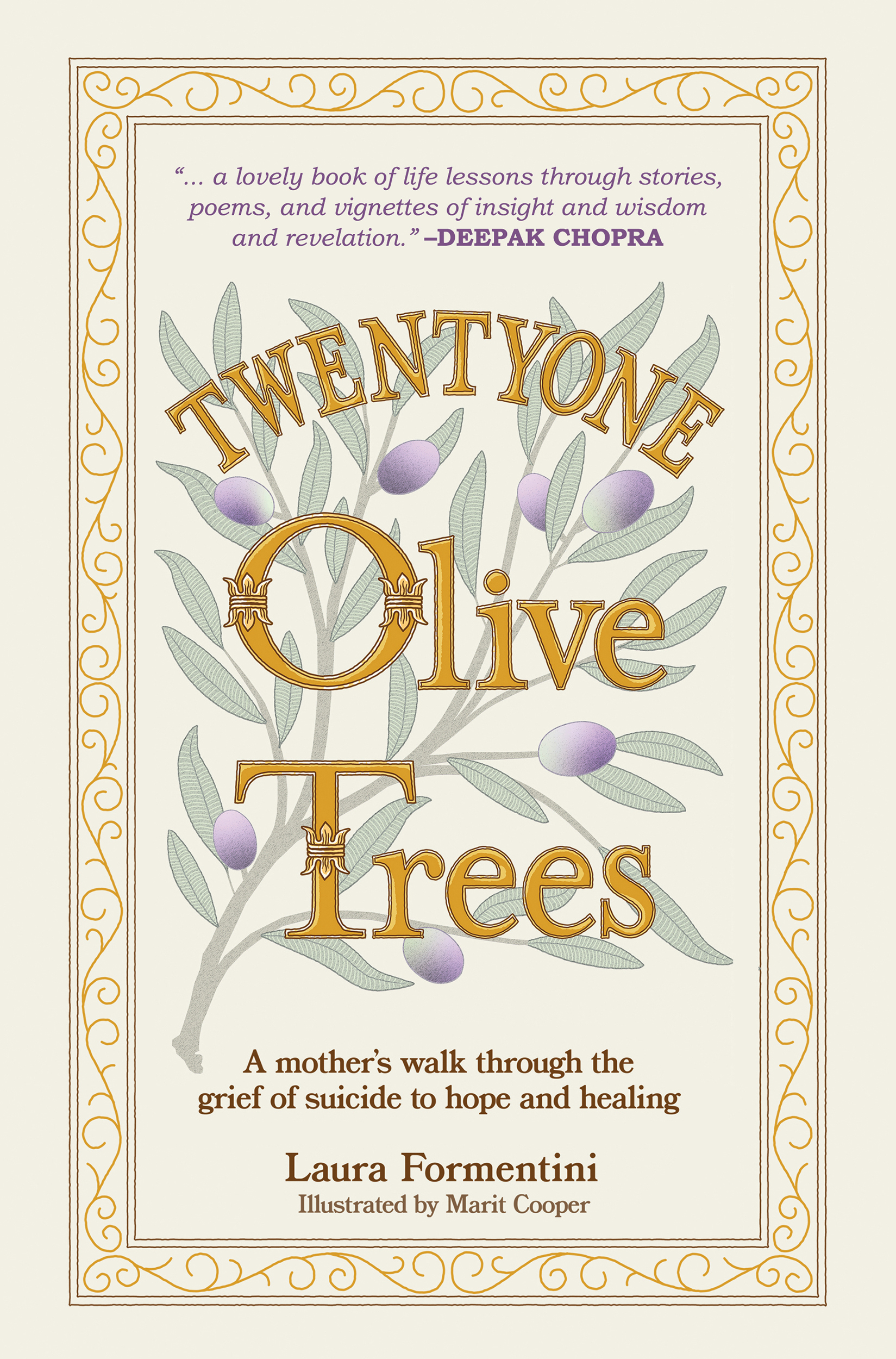In the Introduction of TWENTYONE OLIVE TREES, author Laura Formentini discusses the impact her son’s suicide had on her. She advises people who are suffering from similar situations to try meditation, create something beautiful from the tragedy, and diminish their pain through helping others. She shares some of the useful methods she found—connecting with the spiritual world, letting go of the “why,” and not losing sight of simple acts, such as planting trees.
The imaginative stories that comprise the majority of the pages of TWENTYONE OLIVE TREES are well-written, entertaining, and characteristic of classic children’s fables. Each one includes one or more fun characters. Each has a different, fantastical setting. And each one teaches a distinct moral lesson. However, based on the subtitle “A mother’s walk through the grief of suicide to hope and healing,” this book would not seem appropriate for young children, thus raising the question as to its intended target audience. The essence of the book is found in Formentini’s poetry. Steeped in emotion, her words express her feelings in an authentic, vulnerable voice that brings profound meaning to what she alludes to in the Introduction—what it feels like to be thrown into the depths of adversity.
TWENTYONE OLIVE TREES falls short on its promise to deliver what is asserted in the book’s front matter. Formentini states in the Introduction that the moral of each fable reflects the wisdom she and her son had gained together in life, but she doesn’t explain these connections—connections that would complete her story and potentially help others manage their own grief. And the subtitle is misleading in that the narrative only skims the surface of Formentini’s “walk through the grief of suicide.” Additional details of her experience would enable other suicide survivors to better relate to her story, help put their losses into perspective, and prepare for the life changes that lie ahead of them. Oddly enough, the word “twenty-one” is hyphenated throughout the book (which is consistent with the Merriam-Webster Collegiate Dictionary) but for some reason, it is not hyphenated in the book’s title. If this error is intentional, which could be the case, it would be best to explain it in the Introduction.
TWENTYONE OLIVE TREES is a collection of poignant, heartwarming poems and lighthearted children’s fables written by Laura Formentini following her son’s suicide that may provide inspiration for those who find themselves in similar circumstances.
~Florence Osmund for IndieReader


